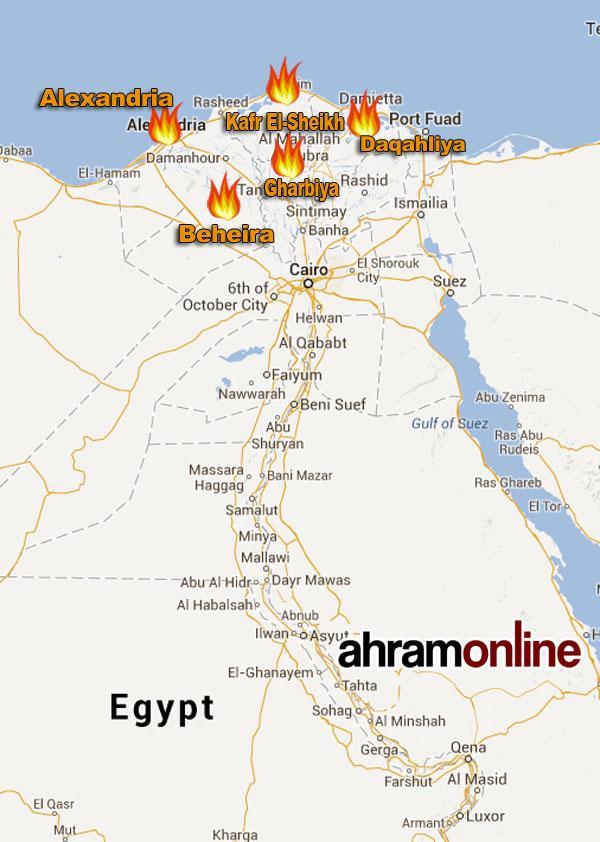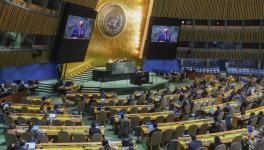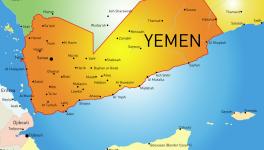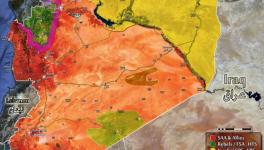Egypt: Both Sides Prepare for June 30th Showdown
Egypt is now on the boil with a wide coalition of forces coming together asking President Morsi to leave and the holding of new presidential elections.
Demonstrations and a mass signature campaign calling for Morsi's resignation is to culminate on June 30th. The response of the Muslim Brotherhood has been to mobilise its mass base and bring it out on the streets as well. In this build up, both sides are targeting June 30th as the decisive moment in this show-down.
In the last few days, wide-spread clashes have occurred all over Egypt, particularly the Nile delta region. The offices of Muslim Brotherhood (MB) and its party – The Freedom and Justice Party (FJP) – have been attacked in Alexandria, and in other towns in this region. Some deaths have occurred in these clashes, though the numbers still remain quite small.

Image Courtesy: Al Ahramonline
While Morsi and the Muslim Brotherhood led forces have lost ground over the last one year, it is not clear that the opposition forces have a coherent alternative. They consist of secular forces, the left (even though weak) as well as the erstwhile elements that were very much a part of the Mubarak regime. They have been joined by the youth, who are by and large disenchanted by the economic programme that the Morsi government has followed.
The spiralling inflation, shortages of petrol and food, a crumbling infrastructure have all contributed to the anger of the youth. Inflation and unemployment have soared. Services have deteriorated while electricity is erratic. Gasoline is scarce and rationed. Poverty has increased from 40 to more than 50 percent. During 2012, there were a large number of protests; such protests and strikes have only increased in 2013.
President Morsi and his government's central focus is to finalise the IMF loan and seeking capital from wealthy countries for investments for plugging the budget hole. There has been no break from the neoliberal policies of the Mubarak period, which had given rise to the popular movement that overthrew him.
The opposition charges that the President and the Brotherhood have not fulfilled their promises of restoring security, instituting social justice, and sharing power. President Morsi and Brotherhood, like Prime Minister Erdogun in Turkey, have a very majoritarian view of democracy – “since we have won the elections, we can do as we please”. That democracy also allows protests and opposition to policies is not a part of their dictionary.
The opposition forces have also a maxilimalist position – if Morsi has lost ground, he should go. Unlike Turkey, the opposition is not articulating a set of demands but virtually a single one calling for Morsi to leave and for new elections.
Another aspect of the current protests is widespread anti-American feelings; this was not just seen in Tahrir Square but also in other cities such as Suez, where hundreds of anti-Morsi protesters took to the streets holding banners with slogans against both President Morsi and US ambassador Anne Patterson.
A new group called Tamarrud or Rebellion led by several youth groups have gained momentum calling for a new movement to depose Morsi and challenging his legitimacy. Another group called Tajarrud or Impartiality, has been formed by the Islamists in order to counter Tamarrud and mobilise support for Morsi.
The volatile mix of the Egyptian politics after the fall of Mubarak has been compounded by the Sunni sectarianism, which Muslim Brotherhood is tacitly supporting. After severing ties with Syria this month, calls for Jihad were made in a number of mosques across Egypt. Anti Shi'a rhetoric has been ratcheted up, with Morsi himself condemning the Assad regime in Syria in sectarian terms. Though recent attack near Cairo that killed four Shia's including a prominent Shi'a cleric has been condemned by Morsi, but he refused to mention that this was an act of sectarian violence.
Morsi seems to be taking Egypt into the sectarian Sunni camp, currently being led by Saudi Arabia, Qatar, Turkey, and various Gulf monarchies. They are fully backed by the US, the UK and France, who are qyuite happy to play the Sh'a Sunnit card to isolate Iran, Hezbollah and President Assad in Syria. Qatar, which has been the prime mover in backing sectarian Sunni forces in Syria recently offer of a loan of $3 billion to Egypt. Not surprisingly, Egypt promptly broke off its relations with Syria and abandoned its earlier position of seeking a peaceful solution to the Syrian crisis with regional powers such as Iran and Turkey.
In this impending collision there is very little middle ground. Egypt is stepping off the brink on June 30th with consequences that are extremely difficult to predict. What is clear is that the terrain of politics is changing in Egypt and the post June 30th scenario is unlikely to be similar to what exists now. All the three scenarios – Morsi-Brotherhood going, Morsi-Brotherhood prevailing or a bloody stalemate – will see the return of the Egyptian military to a more central role in the coming period. This is the real tragedy of the current set of confrontations and the lack of political maturity on both sides.
Image Courtesy: commons.wikimedia.org
Get the latest reports & analysis with people's perspective on Protests, movements & deep analytical videos, discussions of the current affairs in your Telegram app. Subscribe to NewsClick's Telegram channel & get Real-Time updates on stories, as they get published on our website.
























